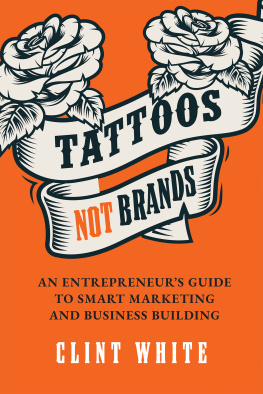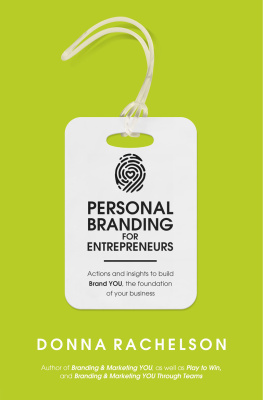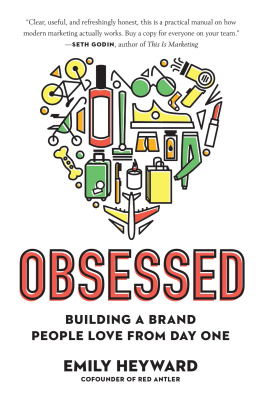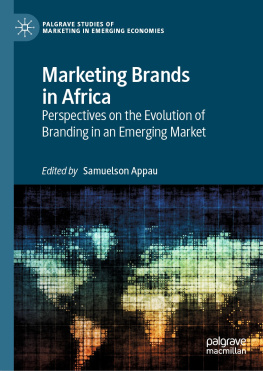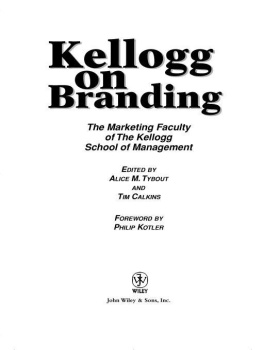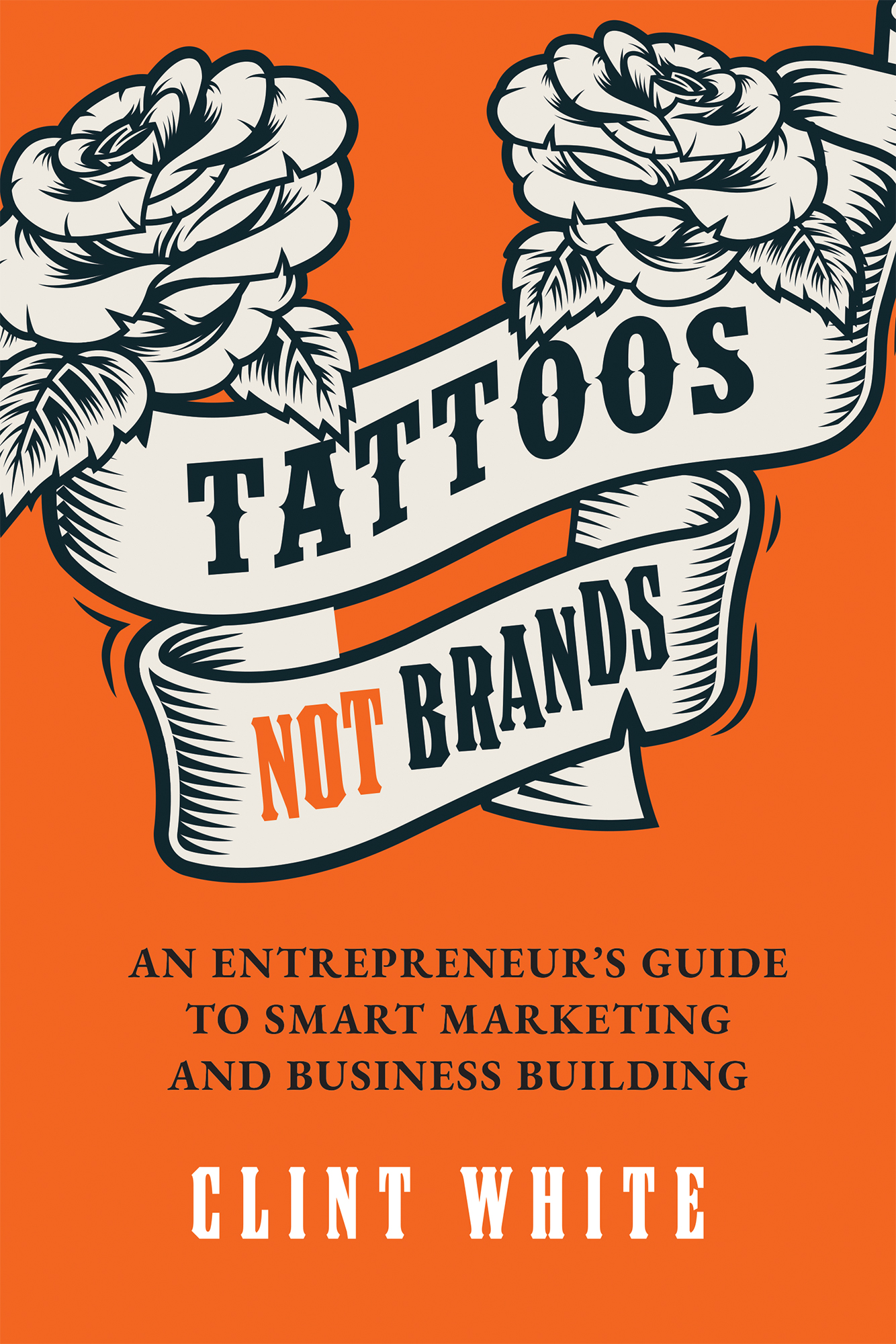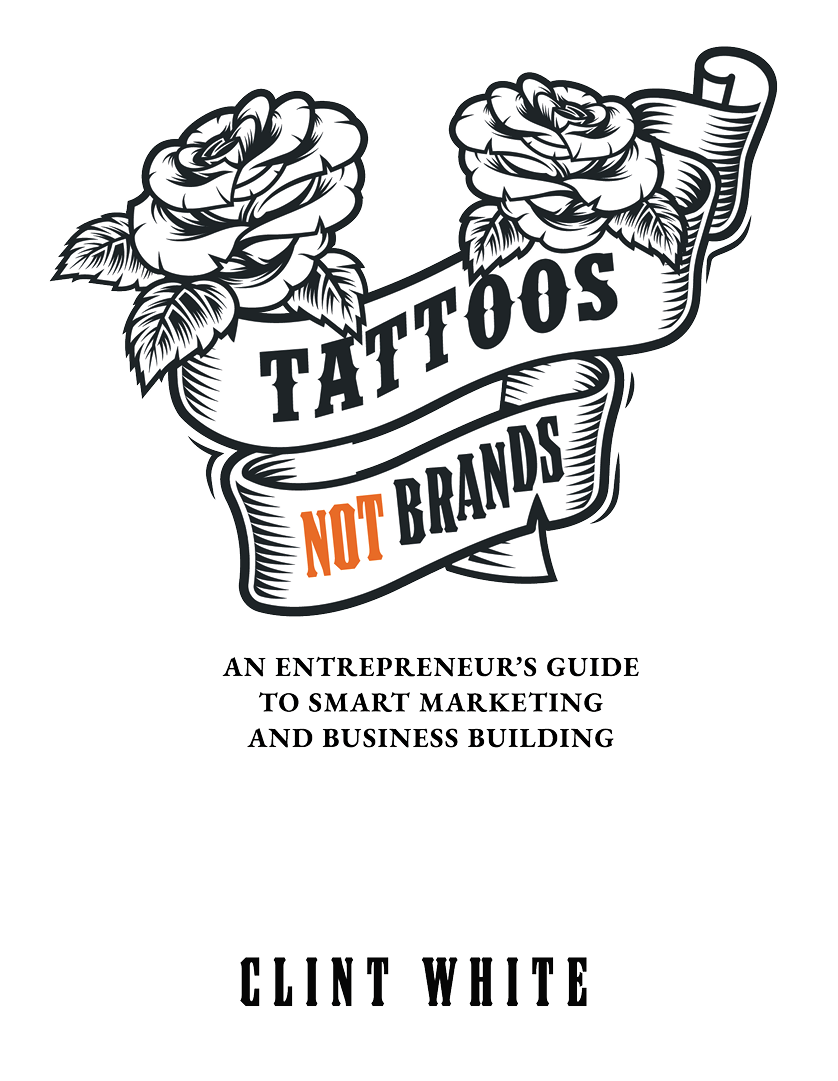Praise for Tattoos, Not Brands
A must-read for anyone who is looking to grow a business, organization, or movement. Full of smart practical guidance that reverberates universallyfrom luxury goods to social impact and everything in between.
Avenue Magazine
In his new book, Tattoos, Not Brands, Clint White provides a step-by-step approach to identifying your target market, quantifying it, and then selling to it as a Tattoo rather than competing against far wealthier and better-established Brands.
Tattoos shows you how to hack the system to avoid waste and inefficiencies. The perfect book for the aspiring entrepreneur, or any small business.
Robert Grede , best-selling author of Naked Marketing: The Bare Essentials (Prentice Hall Press)
Tattoos, Not Brands is an insightful and thoroughly enjoyable ride through the journey of creating great marketing experiences. Clints own experiences are tremendously invaluable in bringing to life concepts that are applicable across industries and pretty much all walks of life.
Kabir Sethi , Head of Digital Wealth Management at Bank of America Merrill Lynch
The mindset of a tattoo can be extremely liberating and helpful whether you are a business, non-profit, politician, influencer, or leading a movement.
Sonja Nesbit, former Deputy Assistant Secretary for Legislation at the U.S. Department of Health and Human Services (HHS); current Managing Director, FTI Consulting
The Tattoos, Not Brands concept is intuitive and powerful. The book is approachable and reframes some foundational ideas about best practices marketing in a digestible way. The text flows easily with insights dropping left and right backed up by the authors personal experiences on what actually works and doesnt.
David Henstock, Head of Identity, Visa
If you feel like you are hitting a roadblock with your marketing, Clint Whites Tattoos, Not Brands will help you overcome them. White will take you by the hand and walk you through a new take on classic marketing tactics. White pulls from decades of his own experience in updating and deploying new marketing strategies for iconic institutions. Learn from this marketing master Tattoos, Not Brands is an unfading toolkit for the modern marketer.
Patrick Dolan , former President and COO of the Interactive Advertising Bureau (IAB)
An amazing first book. Well written, thought provoking, and a practical guide that creators, designers, entrepreneurs, marketers and others can really use and apply.
Steven Alexander , Healthcare Executive
Clint Whites refreshing new take on growth marketing is so smart. This book resets expectations on brand-building and instead offers marketers realistic, actionable tactics to drive results.
Ben Bilbrough, Founder and CEO Addy.co
An instant classic! As an independent creative and nonprofit administrator, I found Mr. Whites focus on identifying and putting ones uniqueness front and center to be both refreshing and instructive. A real game changing mindset in my approach to both current and potential clients or customers.
Arian Blanco , Artist and Co-founder HExTC, Inc.
Clints insight is very specific to a small business owner like me. It helped me to focus on separating myself and services in a huge medical service-based industry.
Dr. Frank J. Ruggiero , Owner, Integrative Physical Therapy of NYC, Retired NYC Firefighter
To my sons, Liam and Quin: You are the ultimate tattoosunique, vibrant, personal, and amazing. Be who you are and let everything align around your evolution. Youll blow us all away.
To my mom, Barbara Prince Levatich: We have a bond that is so powerful and has persevered through so much. Thank you for your encouragement.
To my wife, Marilou Aquino: There are no words to express my appreciation for you. You are my guiding principle. Forever.
Introduction
Tattoos fascinate me.
The way they look, the motivation to get them, what they mean, where they are situated on ones body, the way they age, the way they make one feel, the way they can speak without saying a word, and how seeing the edge of one through clothing instantly creates intrigue.
Simply put, tattoos are powerful.
They are personal. They are at once complex and simple. They can be controversial. They can be ugly and beautiful at the same time, aggressive and sedate. They tell stories. They make statements. They are real. They are life changing and can last a lifetime. (Unless, of course, one falls in line with a major cultural trend and decides to remove themwhich has subsequently created a multibillion-dollar laser-procedure business.)
Tattoos, really, are akin to all the products and services we consume that really matter to us: those we get to choose. Its reasonable to call these things brands . As marketers, we need a word to codify the avalanche of products and services that are available to us because we have a relationship with them. Just think for a moment about how intimately attached we are to our smartphones, morning coffees, shampoo, noise-canceling headphones, favorite sweaters, the cars we driveor the bike we ride, the public transportation we takeand the vacations we plan and experience. In other words, we are attached to our lifestyles.
But drilling down deeper, very few of these things in our lives are truly brands. A brand is something so powerful and coercive that it leaves a rudimentary impression on the brain. Many of the brands surrounding us today were created and taken to market at a time when there were fewer choices, when individualism was much less valued, and homogeneity was the norm.
At its most literal, a brand is a brutal accounting system for animalsespecially cattle designed to help owners efficiently determine who they belong to. Figuratively, though, a brand is an unforgettable shorthand forged by the heat of billions of dollars in advertising, public relations, promotion, personal selling, and length of time in the market. Think Apple. Budweiser. Coca-Cola. Disney. Elvis. Ford. Google. Harley Davidson. IKEA. Johnnie Walker. Kleenex. Levis. Madonna. The New York Yankees. Oreos. Paris. The Red Cross. Starbucks. Tiffany. UPS. Visa. Western Union. And the most newly minted onealbeit circumstantiallyZoom.
These are all brands. The real thing. They are just as recognizable in urban areas as they are in small towns. Their logo and signature color palette alone are indicative of the product. Eight out of ten people walking down any street practically anywhere in America will recognize them. They will know exactly what they are and what they do. Their benefit to the consumer will be generally clear and shared. (How else does a three-year-old child who cant read recognize McDonalds?)
Much has already been written and said about global brands. They dont need our help. They have identified formulas for staying at the top of consumers minds through masterful management of owned, earned, and paid media. Their media management is fueled by massive cash outlays, legacy leveraging, constant content creation, and product placements. These all result from corporate cultures of innovation. Consumers are coerced brutally, benevolently, elegantly, and sometimes absurdly to think about these brands and then buy them, over and over again.
This book is not about them.

